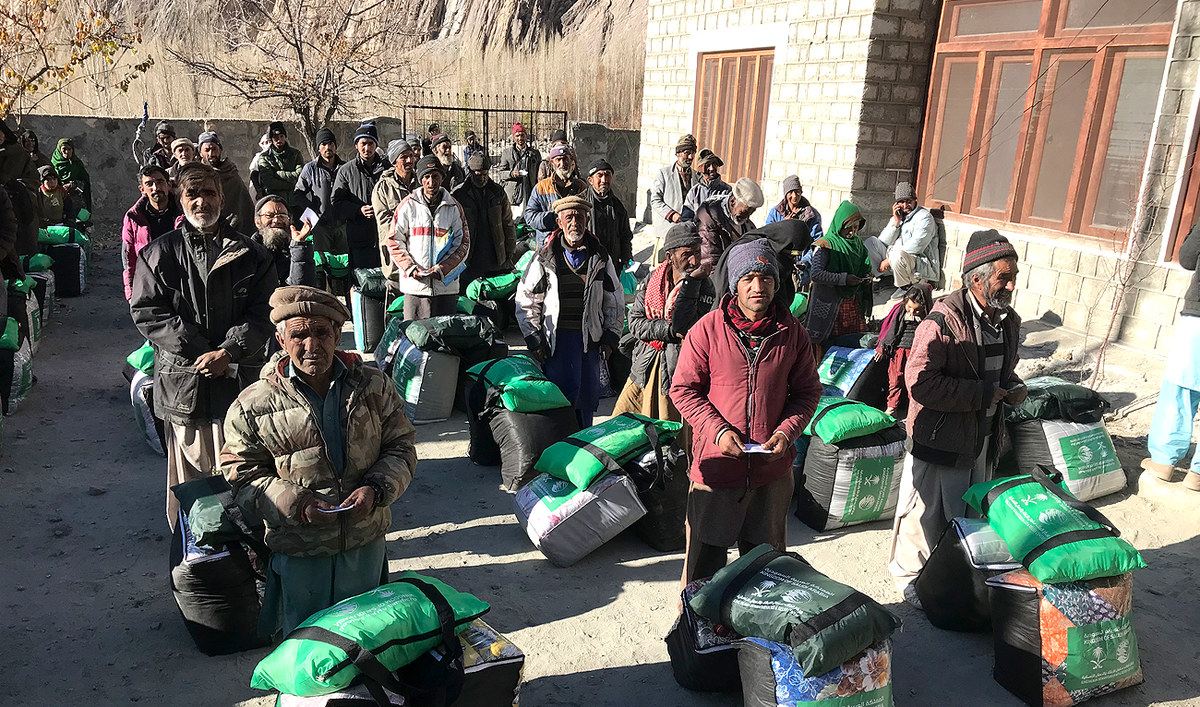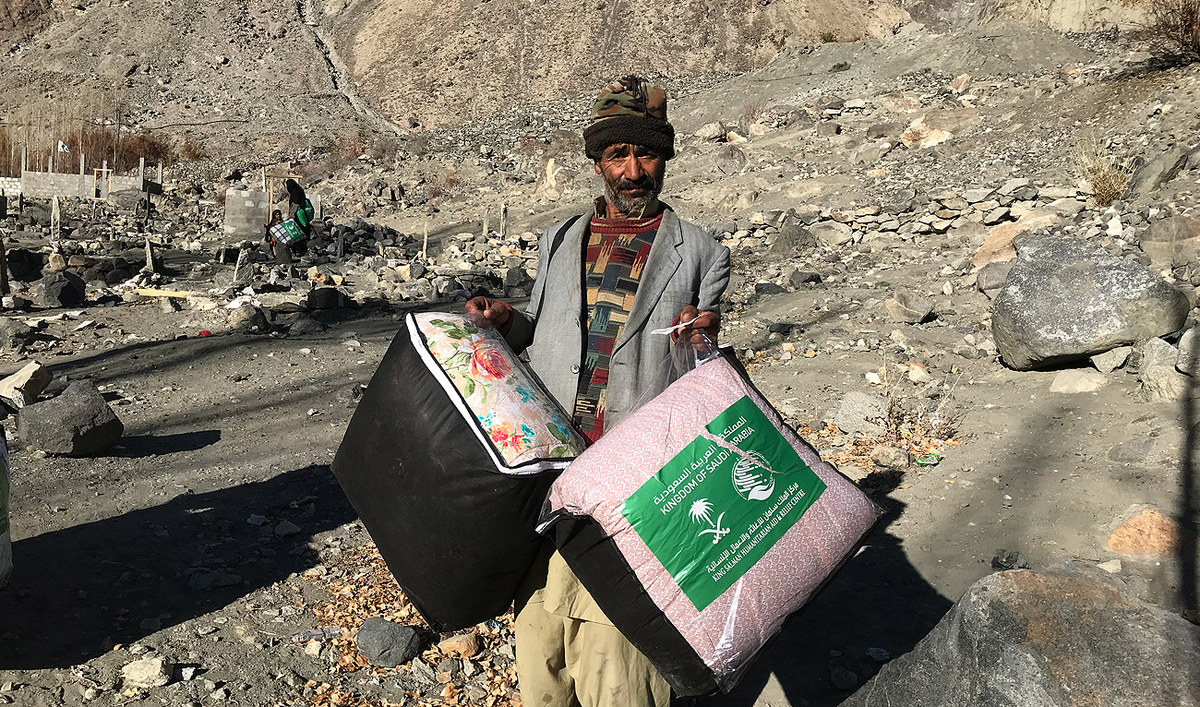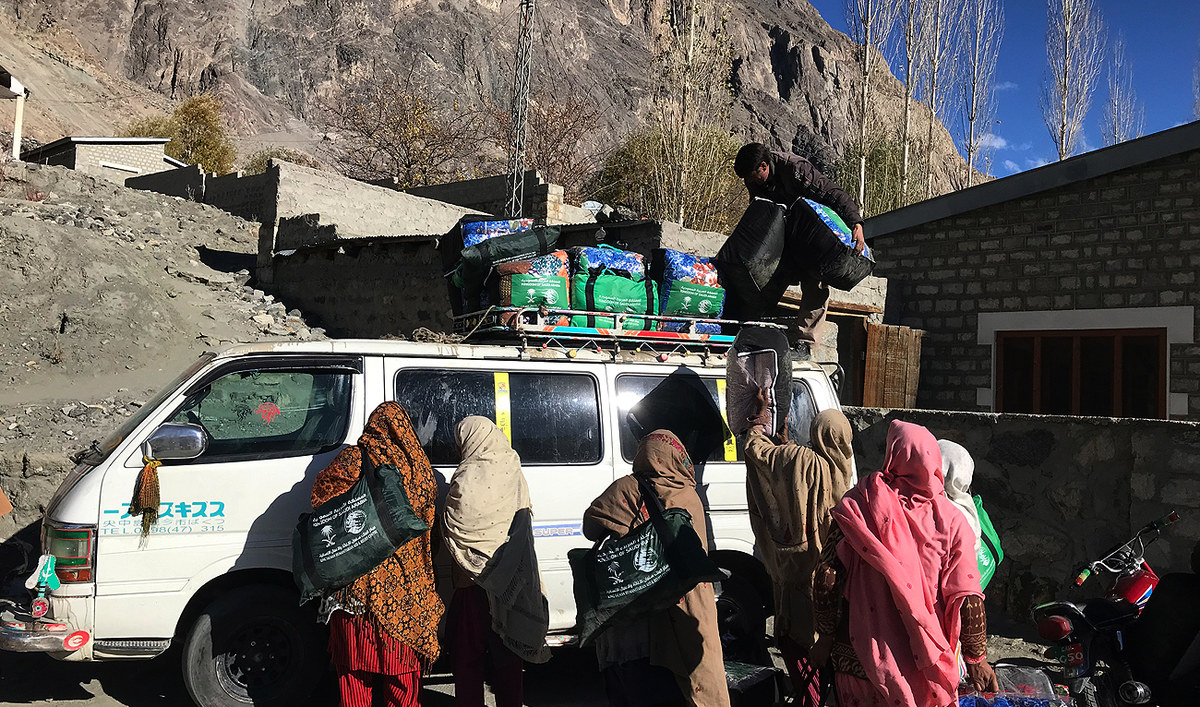KHAPLU, Pakistan: The King Salman Humanitarian Aid and Relief Center (KSrelief) has distributed winter kits among some of the poorest families in Pakistan’s northern Gilgit-Baltistan region, confirmed a local official helping the Saudi agency with the delivery of these packages in the area.
KSrelief announced earlier this week it had started the distribution process by delivering 570 winter bags in Nagar Valley and Ghizer district which would benefit 3,990 people.
Gilgit-Baltistan is one of the coldest regions in Pakistan where the Saudi agency has also carried out similar projects in the past to help underprivileged people.
“On behalf of KSrelief, we are distributing winter kits in five districts of Gilgit-Baltistan,” said Hafizur Rehman, a representative of Hayat Foundation which is part of the distribution mechanism, while speaking to Arab News on Thursday.
He said the Saudi charity planned to distribute over 9,400 winter kits in different parts of the region.

People queue up to receive winter kits provided by KSrelief in Gilgit-Baltistan’s Ghanche district in Pakistan on November 16, 2022. (AN Photo)

An old man poses for a picture while holding KSrelief’s winter kits in Ghanche district, Pakistan, on November 16, 2022. (AN Photo)
“The winter kits are distributed among the more deserving families and flood victims in the region,” he continued. “We started the distribution process from November 14 and will continued until November 20.”
Pakistan witnessed unprecedented monsoon rains and floods this year that claimed 1,700 lives and affected more than 33 million people.
While much of the devastation was caused in the southern provinces of Sindh and Balochistan, residents of Gilgit-Baltistan also suffered a great deal and witnessed the destruction of public infrastructure, including roads and bridges.
“I have received my winter package,” Ghulam Nabi, a 55-year-old resident of Ghanche district, told Arab News. “I want to thank those who have sent these winter kits for us which will greatly help us when temperature drops further in this area.”
KSrelief has provided humanitarian and development aid to more than 80 countries spread over four continents.
Pakistan is the fifth-largest recipient of its assistance and has received over $120 million in aid since 2005.

Women are taking a van to return to their homes after collecting KSrelief’s winter kits in Ghanche district of Gilgit-Baltistan, Pakistan, on November 16, 2022. (AN Photo)












